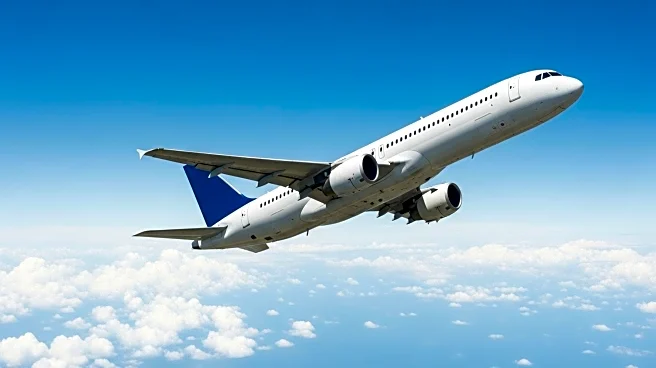What is the story about?
What's Happening?
A report by the International Air Transport Association (IATA) reveals that Nigerians must work an average of 37.6 days to afford a flight ticket, despite a 43% drop in airfares since 2011. The aviation sector in Nigeria contributes $2.5 billion annually to the country's GDP and supports over 217,000 jobs. However, international connectivity has declined, with Nigeria's index falling 21% globally since 2014. The report highlights the economic significance of aviation and tourism, with international visitors spending $760.2 million yearly and tourism contributing $454.1 million to the GDP.
Why It's Important?
The high cost of air travel in Nigeria poses a significant barrier to mobility and economic participation for many citizens. Despite the aviation sector's substantial contribution to the economy, the affordability issue limits access to air travel, potentially hindering economic growth and development. The decline in international connectivity further exacerbates the situation, reducing Nigeria's integration into the global economy. Addressing these challenges is crucial for enhancing the aviation sector's role as a driver of economic and social development in Nigeria.
What's Next?
Efforts to improve affordability and connectivity in Nigeria's aviation sector are likely to continue, with potential policy interventions aimed at reducing costs and enhancing infrastructure. The government and industry stakeholders may need to collaborate on strategies to boost international connectivity and make air travel more accessible to the average Nigerian. Monitoring the impact of these efforts and adjusting strategies accordingly will be essential for achieving sustainable growth in the aviation sector.
















